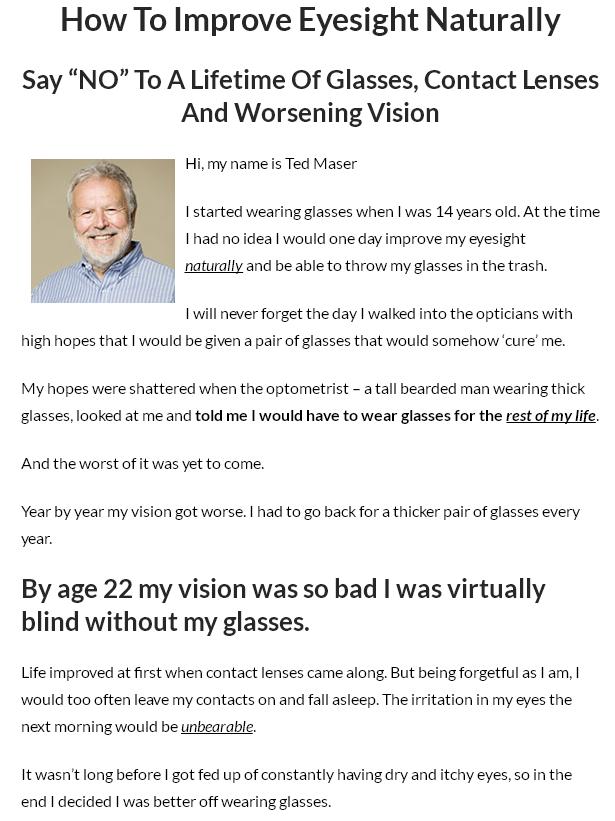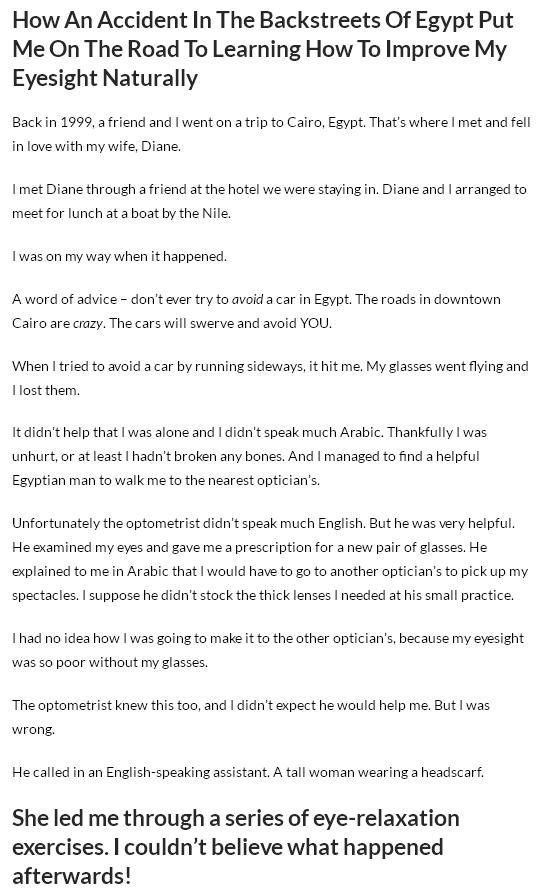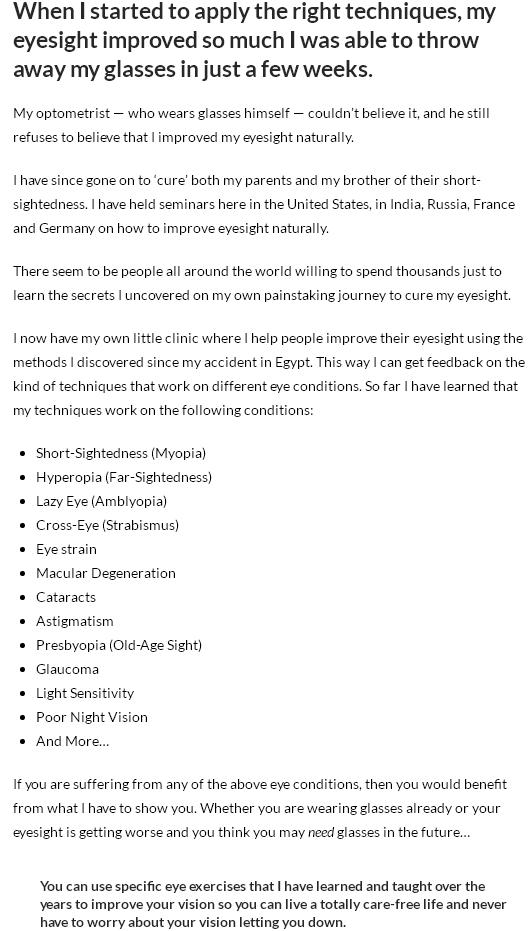There is scant scientific evidence to support that eye exercises work to improve vision. Whether or not we can achieve vision without glasses is determined by eye shape, pupil size and capability of shifting focus.
However, Dr. William H. Bates, ophthalmologist, a pioneer in the arena of visual training contends eye exercises can significantly improve eyesight to the point glasses or contact lenses aren’t necessary. This is based on statistics very few babies are born with abnormal vision. Instead, imperfect eyesight is acquired.
Most eye professionals do not support Dr. Bates’s findings and those who offer visual training in their practice are rare. The common hypothesis among vision experts is that the eye changes its lens shape when focusing on varying distances. Most visual problems are a result of permanent eyeball and lens deformities.
 However, Dr. Bates’s research suggests that the total eye, not just the lens, adjusts when focusing, using muscles of the eyeball. Eye muscles tighten when under stress and strain. Bates developed a set of eye exercises that teach tense muscles to relax. As a result, according to Dr. Bates, his training exercises can correct many visual disorders.
However, Dr. Bates’s research suggests that the total eye, not just the lens, adjusts when focusing, using muscles of the eyeball. Eye muscles tighten when under stress and strain. Bates developed a set of eye exercises that teach tense muscles to relax. As a result, according to Dr. Bates, his training exercises can correct many visual disorders.
The idea is that if a person progressively reduces time wearing corrective lenses each day and practices the essential eye exercises, they will gradually decrease their dependency on glasses or contact lenses.
Although improving vision with eye exercises remains a hot topic of controversy, various programs have been around since the 1920s. For example, the Navy taught vision training to their pilots in 1941 so they could spot enemy aircraft earlier. After completing the vision training, it was revealed that the pilots overall vision was sharper.
Martin Sussman, Founder, Cambridge Institute for Better Vision developed The Program for Better Vision. Since its inception in 1976, they report having helped over 250,000 people.
A small study of 96 patients with visual dysfunction was reported in the 1986 Journal of the American Optometric Association. Following a program of vision therapy, 53% achieved total elimination of visual problems; 43% evidenced reduced visual problems and 4% of the patients remained the same.
However, due to alleged fraudulent claims about their success rate, several eye exercise programs were removed from the market. A company in Iowa, Vision Improvement Technologies was ordered by an Iowa district court to halt all sales in 2006. Further, the court ordered restitution in the amount of $200,000 for a fund to recompense consumers.
So – what is the bottom line? Do eye exercises work to improve vision, or not? Ophthalmologists and optometrists agree there is a lack of scientific research to demonstrate the effectiveness of eye exercises to reduce or eliminate refractive errors and reduce the necessity for visual aids.
There is likely no harm incurred with eye exercises to improve vision. But, before parting with your money to an internet provider who suggests you can “throw away your glasses”, it would be prudent to have an all-inclusive eye examination. Also, consult with a trustworthy professional eye doctor about the safety and success rate of eye exercise plans you are contemplating. Further reading and research can be found here – http://visionwithoutglassesrevealed.com .



